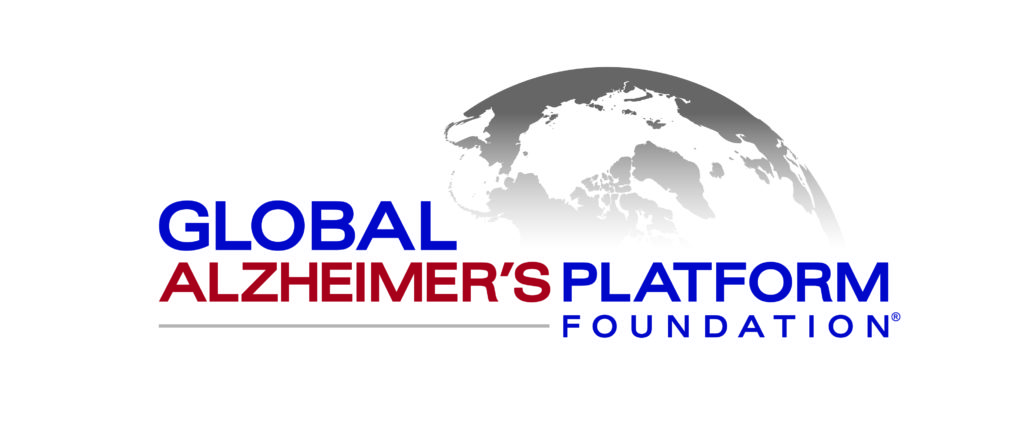TRAILBLAZER-ALZ 2 is the second study of donanemab, which showed favorable results in an earlier trial.
Washington, DC (March 13, 2021) – Eli Lilly and Company, a leader in Alzheimer’s research for over 30 years, is partnering with the Global Alzheimer’s Platform Foundation® (GAP) to accelerate recruitment services and expand the number of clinical research centers available to enroll participants in TRAILBLAZER-ALZ 2. This study will determine whether the initial success of the drug donanemab in its first phase 2 trial, TRAILBLAZER-ALZ, involving 272 participants, can be repeated in a much larger study. The first TRAILBLAZER-ALZ trial launched in December of 2017 was supported by GAP, resulting in accelerated research timelines among sites in their network, GAP-Net. Over three years later, results for this study were released and showed donanemab significantly slowed decline in cognition and daily function in participants with early symptomatic Alzheimer’s disease.
Both GAP and Lilly are eager to learn more about the efficacy and safety of donanemab in the hope of paving the way for its thorough evaluation and approval by the FDA for widespread clinical use. This is a much needed result as there currently is no FDA approved disease modifying treatment for early stage Alzheimer’s, and the CDC estimates that without a breakthrough, 13.9 million Americans will suffer from Alzheimer’s by 2060.
“Donanemab and the results of TRAILBLAZER-ALZ are eye-catching at a time when nearly 10,000 people a day turn 65 years old – the age when risk of Alzheimer’s increases,” said GAP President John Dwyer. “Alzheimer’s research has been slowed by the challenges associated with determining when patients have amyloid build up in the brain, a hallmark of Alzheimer’s and the target of the drug donanemab. We appreciate Lilly’s willingness to invest in our pioneering processes to accelerate recruitment for the TRAILBLAZER-ALZ 2 trial.”
GAP will bring its expertise to TRAILBLAZER-ALZ 2 and additional GAP-Net sites to overcome time-restricting barriers and accelerate study enrollment at an unprecedented pace. In addition, GAP is also committed to seeking participants with diverse ethnic and racial backgrounds for TRAILBLAZER-ALZ 2. GAP recently made a groundbreaking commitment to recruit 20% Black and Latino volunteers for the GAP sponsored Bio-Hermes biomarker study.
TRAILBLAZER-ALZ 2 is currently recruiting at select sites in the U.S. and around the world, with additional sites being activated weekly, including sites in GAP-Net North America, with the goal of over 130 research centers conducting this study worldwide. Volunteers in the U.S. and Canada interested in this study can visit TRAILBLAZER2study.com for more information.
“We are confident and excited about the results of the TRAILBLAZER-ALZ study,” said John Sims, M.D., and Lilly’s senior medical director for Alzheimer’s disease. “This is the first late-stage study in Alzheimer’s disease to meet its primary endpoint at the primary analysis and donanemab has the potential to become an important treatment for Alzheimer’s disease. We still have more work to do and are pleased that the Global Alzheimer’s Platform will be joining us and bringing their expertise and energy to get the phase 3, TRAILBLAZER-ALZ 2, study enrolled with the greatest urgency. Alzheimer’s disease is a progressive neurodegenerative disorder, and patients are waiting. There is no time to waste.”
To be eligible for the TRAILBLAZER-ALZ 2 study, a participant must be 60 to 85 years old; have memory loss that has gotten worse over time; and have a study partner who knows them and is also willing to attend appointments throughout the study.
About the Global Alzheimer’s Platform Foundation® (GAP)
The Global Alzheimer’s Platform Foundation® (GAP) is a patient-centric nonprofit dedicated to accelerating the delivery of innovative therapies for neurological disorders by reducing the duration and cost of clinical trials. Research centers across the US and Canada are part of the growing GAP Network (GAP-Net). GAP supports GAP-Net research centers by assisting with study start up and recruitment activities, promoting diversity in research studies, and offering national programs that champion brain health and the citizen scientists who make research possible.
Contact: Pamela Larkin – pamelalarkin@rational360.com, 408-466-5952
